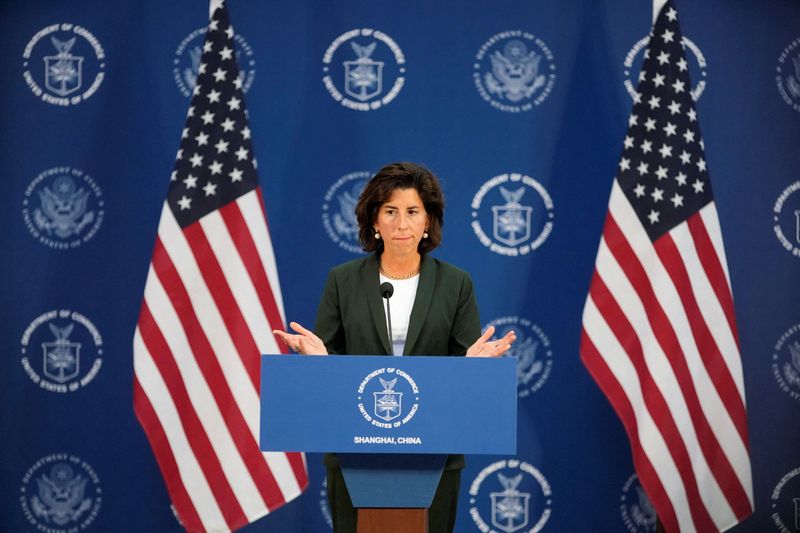US commerce secretary doesn’t expect changes to Trump China tariffs until review complete
2023.09.05 19:57

© Reuters. FILE PHOTO: U.S. Secretary of Commerce Gina Raimondo attends a press conference at the Boeing Shanghai Aviation Services near the Shanghai Pudong International Airport, in Shanghai, China August 30, 2023. REUTERS/Aly Song/File Photo
By David Shepardson
WASHINGTON (Reuters) – U.S. Commerce Secretary Gina Raimondo said on Tuesday she does not expect any revisions to U.S. tariffs on China imposed during President Donald Trump’s administration until an ongoing review is completed by the U.S. Trade Representative’s Office.
“I don’t think the (Biden) administration will make any changes until that review is completed,” Raimondo told CNBC. It is not clear when USTR will conclude the review.
Trump, a Republican, imposed tariffs in 2018 and 2019 on thousands of imports from China valued at some $370 billion at the time, after a “Section 301” investigation found that China was misappropriating U.S. intellectual property and coercing U.S. companies to transfer sensitive technology to do business.
“We didn’t put those tariffs in place. We don’t think they make a whole of sense in many cases,” Raimondo, part of the administration of Democratic President Joe Biden, said on Tuesday. “I think the Trump tariffs could have been much more strategic and that’s why we are doing this four-year review.”
The review by USTR is “to see if (the tariffs) are effective,” she said.
But Raimondo added, “China’s practices of subsidizing their businesses have hurt U.S. workers so we need a level playing field.” Last week, she criticized various new Chinese restrictions on U.S. businesses operating in China.
China’s commerce minister last week urged Chinese companies investing in the U.S. to be given “equal treatment” and called U.S. 301 tariffs on Chinese imports “discriminatory,” when he met with Raimondo in Beijing.
The Trump administration used Section 301 of the Trade Act of 1974, a statute aimed at combating trade partners’ unfair practices, to launch the tariffs in 2018 and 2019.








